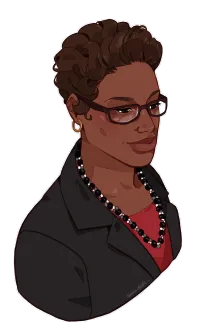
What DCF Can and Can’t Do: Know Your Rights as a Parent
When the Connecticut Department of Children and Families (DCF) becomes involved in your life, it can feel overwhelming and confusing. Many parents don’t fully understand what DCF isallowedto do — and just as importantly, what theycannotdo without following proper legal procedures.
At The Christie Law Firm, we believe that knowledge is power. Here’s a breakdown of what DCF can and can’t do, and how you can protect your rights if they contact you.
1. DCFCan Investigate Allegations of Abuse or Neglect
DCF has the legal authority to investigate reports of suspected abuse or neglect. This means they can:
Visit your home
Interview your children
Speak with teachers, doctors, or family members
Request certain documents related to your family’s wellbeing
Their goal is to determine whether your child is safe and if any additional support or intervention is needed.
However — and this is key —you still have rights during this process. You can ask questions, request clarification, and even have an attorney present for interviews or meetings.
2. DCF Cannot Remove Your Child Without Court Approval
DCF cannot simply take your child away without first obtaining a court order, unless there is an emergency where a child is in immediate danger.
Even in urgent cases, DCF must:
Provide documentation showing why removal was necessary, and
Appear before a judge shortly after to justify their actions.
You have the right to attend that hearing, present your side, and have legal representation.
3. DCF Cannot Terminate Parental Rights Without Due Process
Terminating parental rights is one of the most serious actions a court can take — and DCF cannot do this on their own.
Before rights are terminated, several steps must occur:
DCF must make reasonable efforts to reunify the family.
You must be notified of the proceedings.
A judge must review all evidence and determine that termination is in the child’s best interest.
This process takes time and involves multiple hearings. You have the right to be heard, represented, and to appeal if necessary.
4. You Have the Right to Legal Representation
If DCF contacts you,you have the right to an attorney— whether you hire one privately or are appointed one by the court if you can’t afford it.
Having a knowledgeable DCF attorney ensures:
Your rights are protected during every stage of the case
You understand what DCF is asking for and why
You don’t accidentally say or sign something that harms your case
At The Christie Law Firm, we know how DCF operates — because Attorney Christie is a former DCF social worker who understands both sides of the system.
Final Thoughts
When DCF gets involved, it doesn’t automatically mean you’re a bad parent. It means there’s a concern — and you have the right to address it with support and representation.
Understanding what DCF can and can’t do helps you stay calm, informed, and in control of your situation.
If you’re dealing with DCF or worried about losing your child, don’t face it alone.
Contact The Christie Law Firm todayat (860) 461-7494 or visit thechristielawfirm.com for a confidential consultation.

Ph: 860.461.7494
Fax: 860-461-7003
All information displayed on the The Christie Law Firm website is informational and shall not be deemed as legal advice.
If you’re currently dealing with an individual legal situation, you’re invited to contact us through email, phone, or form.
Until an attorney-client relationship has been established, we urge that you avoid sharing any confidential information.
© 2023 The Christie Law Firm, LLC All rights reserved
Family Focused & Child Centered™️
Illustrations by: Kuresse Bolds
Website Powered by Shaggy Digital


